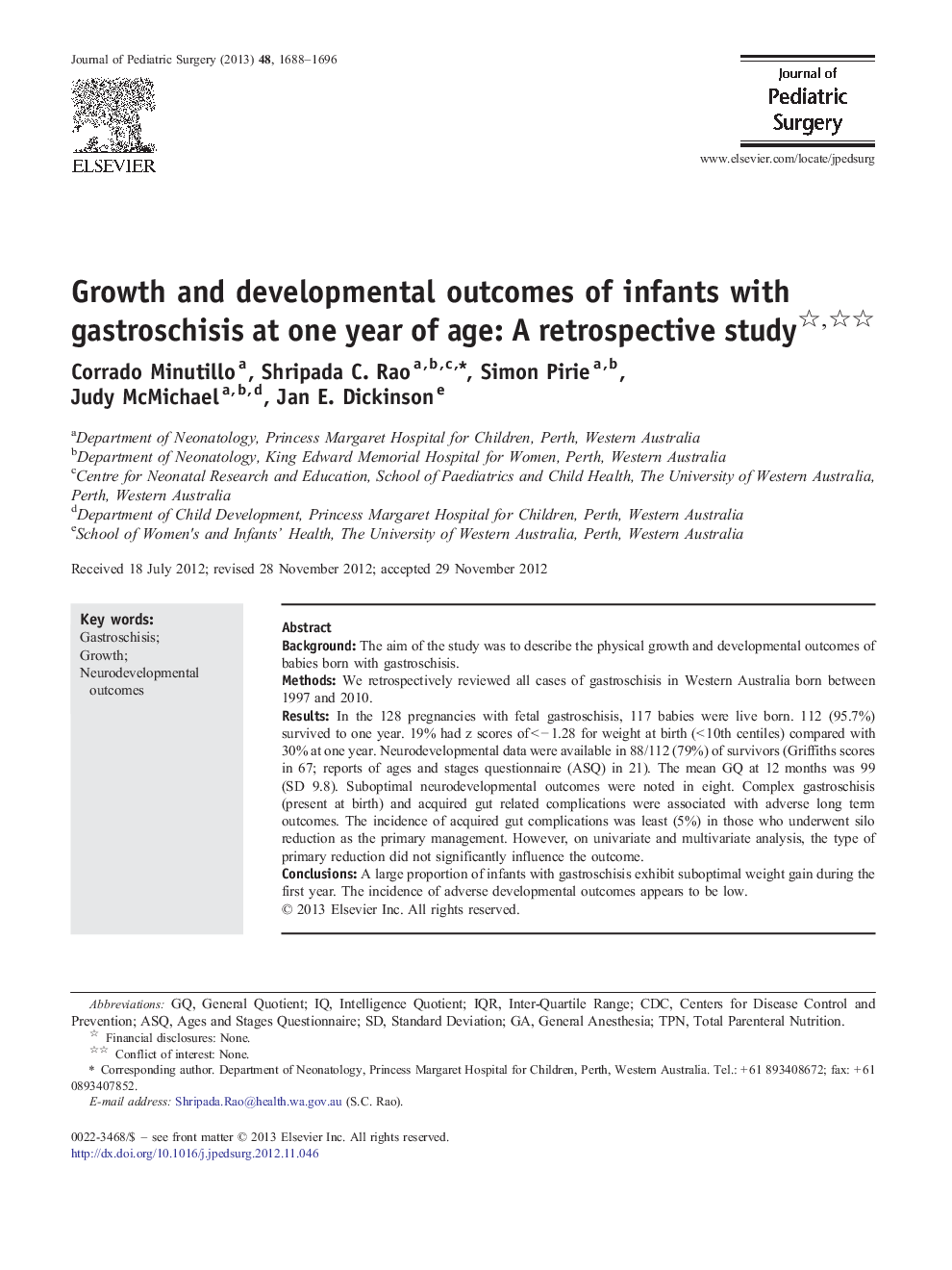| Article ID | Journal | Published Year | Pages | File Type |
|---|---|---|---|---|
| 4155953 | Journal of Pediatric Surgery | 2013 | 9 Pages |
BackgroundThe aim of the study was to describe the physical growth and developmental outcomes of babies born with gastroschisis.MethodsWe retrospectively reviewed all cases of gastroschisis in Western Australia born between 1997 and 2010.ResultsIn the 128 pregnancies with fetal gastroschisis, 117 babies were live born. 112 (95.7%) survived to one year. 19% had z scores of < − 1.28 for weight at birth (< 10th centiles) compared with 30% at one year. Neurodevelopmental data were available in 88/112 (79%) of survivors (Griffiths scores in 67; reports of ages and stages questionnaire (ASQ) in 21). The mean GQ at 12 months was 99 (SD 9.8). Suboptimal neurodevelopmental outcomes were noted in eight. Complex gastroschisis (present at birth) and acquired gut related complications were associated with adverse long term outcomes. The incidence of acquired gut complications was least (5%) in those who underwent silo reduction as the primary management. However, on univariate and multivariate analysis, the type of primary reduction did not significantly influence the outcome.ConclusionsA large proportion of infants with gastroschisis exhibit suboptimal weight gain during the first year. The incidence of adverse developmental outcomes appears to be low.
